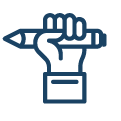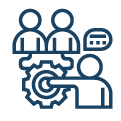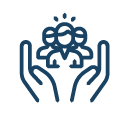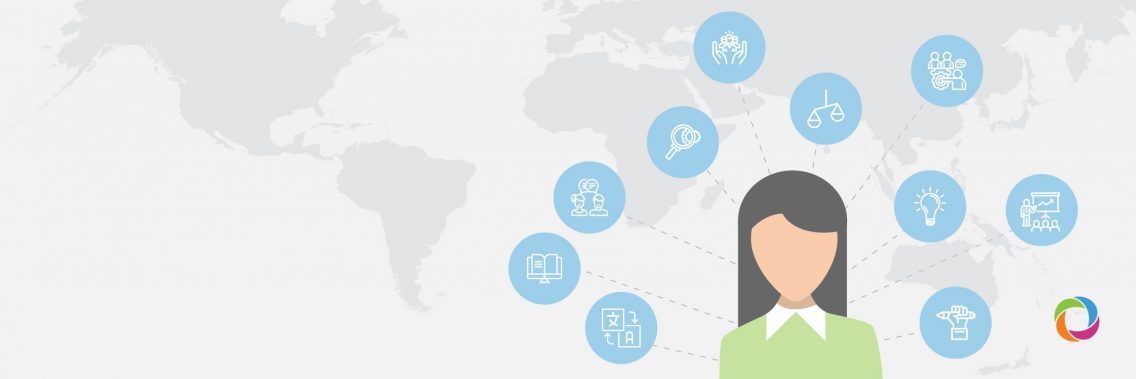The international development sector offers one of the most desirable career paths which means there will always be plenty of competition that you need to stay ahead of. The constant development of skills is the key to future-proofing your career. Here is a list of the qualities and abilities that employers seek the most in candidates. So, next time you update your CV, make sure you revise the “skills” section accordingly.
 Fluency in two or more languages
Fluency in two or more languages
Foreign language competency is one of the most important skills for international development and humanitarian workers. Language fluency is very helpful when working on projects, negotiating with governments or interacting with the local population. Some of the most competitive jobs in the international development sector are tied directly to language skills. Many UN vacancies require fluency in at least one, more often two, of the six official UN languages, English and French being those most in demand.
 Fully computer literate
Fully computer literate
Digitalization is indisputably everywhere and across all industries, including international development. Tech skills are of the utmost importance for every organisation. No matter the sector where you are employed as professional, full computer literacy is a requirement. As most tasks include analysis, research, reports, etc, knowledge of Microsoft Office and a good understanding of database software are a must nowadays.
 Excellent communication skills
Excellent communication skills
Careers in international development usually involve extensive interaction with government officials, organization leaders, staff members, and locals. To make sure that messages are correctly conveyed to all parties involved, professionals must maintain excellent communication skills. This includes appropriate body language, the ability to listen, an assertive manner as well as being able to ensure that messages are delivered clearly and concisely through measured and articulate speech.
 Excellent writing skills
Excellent writing skills
When completing tasks such as report writing, strategy planning or putting together a grant application or press release, possessing a certain level of writing skills can help greatly. A good level of competency allows you to communicate your message with clarity and ease to a far larger audience than can be achieved by either face-to-face or telephone conversations.
 An eye for detail
An eye for detail
Attention to detail offers the ability to achieve thoroughness and accuracy in the completion of a task. “Great attention to detail” is one of the strongest assets to appear on a resume, as more and more employers seek this skill. To have a keen eye for detail means to possess the ability to manipulate small pieces of data with accuracy to ensure that the implementation and impact of all activities are to the highest standard possible.
 Intercultural management skills
Intercultural management skills
International development careers generally entail large teams comprised of people from different cultures and nationalities. In certain cultures, teams will expect a manager to keep a tight rein and will feel a little lost if a boss allows more freedom. Other cultures are exactly the opposite. The ability to lead, motivate and manage multi-cultural teams and individuals towards delivering high-quality results is one of the key skills required in international development.
 Ability to balance competing priorities
Ability to balance competing priorities
Projects never move along a linear trajectory. There are often competing demands that all require immediate attention and resources. Having the ability to competently handle the inevitable snags encountered along the way is an important asset in the development sector. Prioritizing tasks is, more often than not, the key to successful multitasking.
 Innovation and creativity
Innovation and creativity
According to several studies, among the most important jobs skills of the 21st century are innovation and creativity. This applies to international development as well. Competencies such as creativity, critical, strategic and innovative thinking allow the development of solutions for the complex world in which we live.
 Ability to be a role model
Ability to be a role model
A role model is a person whose behavior, example or success is or can be emulated by others. Such people are desired by every team as they can inspire collaboration and engagement between colleagues. Role models can significantly impact upon the vision, behavior, and growth of a team.
 Professional demeanor
Professional demeanor
Developing and maintaining a professional demeanor is essential to success in the workplace. Employers expect both prospective candidates and existing employees to demonstrate professionalism when interacting with others. When your field of work is within a different culture to that of your own, it is essential to maintain emotional maturity, tolerance, and enthusiasm to provide the assistance required.
Find out more about the top skills that employers seek in a candidate by accessing the DevelopmentAid job board.

